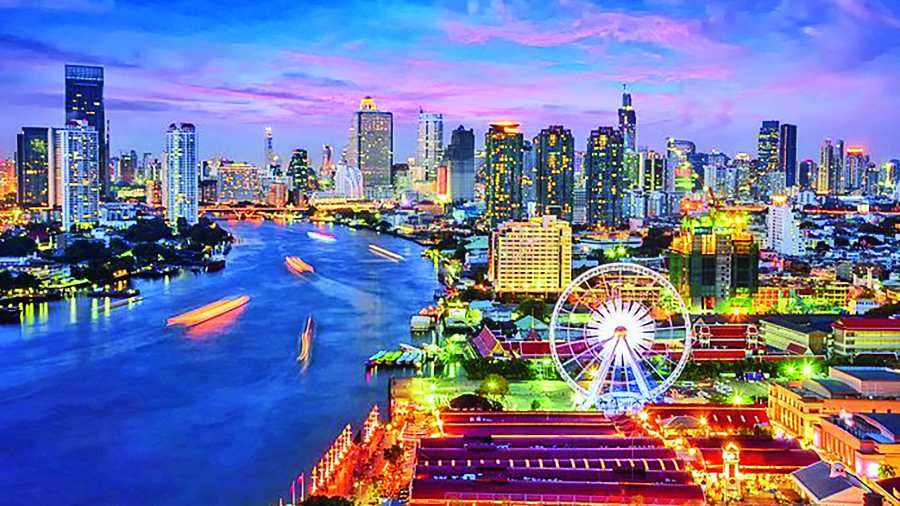Thailand, a popular tourist destination for Kolkatans, wants tourism to be hot again there but the India government’s mandate that passengers returning from that country have to undergo an RT-PCR test for Covid is proving to be a thorn, Thai authorities said.
Officials of the Tourism Authority of Thailand (TAT) and the country’s consulate in Kolkata said the post-pandemic surge in tourism seen last year would grow further if the mandatory RT-PCR test was withdrawn.
“After the new RT-PCR norm (set by the Indian government), the bookings have dropped. The cancellations are mostly from frequent individual travellers,” Siriges-A-Nong Trirattanasongpol, who has recently taken over as director of TAT, New Delhi, said at a tourism promotion programme in Kolkata on Thursday.
A TAT official said the Covid situation in Thailand was under control and all restrictions, including quarantine requirements, were withdrawn.
However, people travelling to Thailand have to buy a health insurance of $10,000 by paying a premium of around Rs 1,200.
“If the RT-PCR norm is withdrawn, it will be better for the tourism sector,” said Piyapan Atipatya, deputy consul general, Royal Thai Consulate-General in Kolkata. “Our country’s ambassador to India has already raised the issue with the Indian government,” he said.
The Centre has made it mandatory for everyone entering India from Thailand, China, Singapore, Hong Kong and South Korea to show a negative Covid RT-PCR test. The Centre had said this was done because of rising Covid cases in China and other countries.
In 2019, the last pre-pandemic year, around 1.96 million tourists from India had visited Thailand. Close to 10 per cent of them were from West Bengal, said Trirattanasongpol, while giving a presentation.
Last year, after tourism resumed following a Covid-induced disruption, around 1 million tourists had visited Thailand from India, the TAT director said.
“Our target is to have 1.4 million tourists from India in 2023. We are focussing on weddings, incentive travel, golf and family tourism,” she said. TAT officials and representatives of several hotel groups in Thailand showcased destinations like Chiang Rai, Hua Hin, Khao Lak and Kanchanaburi, along with more popular places like Bangkok, Phuket and Pattaya.
“We were seeing a huge rush in group bookings from India after Covid. We had to frequently deny bookings because all our rooms were full,” said Rakesh Bhandari, director of sales, global sales and India, Dusit Hotels and Resorts, which has 20 properties across Thailand.
He said the group’s room tariff had gone up by 15 to 20 per cent compared with 2019 because of the growing demand. “After the RT-PCR norm was re-introduced, we have seen cautiousness in bookings by a section of tourists,” said Bhandari.
Tour operators in Kolkata, too, said they had seen reluctance among a section of travellers because of the RT-PCR norm.
“A few groups and individuals have postponed Thailand travel plans. We want the RT-PCR norm to be withdrawn since Covid cases have come down,” said Anil Punjabi, chairman, east, Travel Agents Federation of India. “If one person tests positive in a group, then other members, too, will get stuck.”
“Those traveling with elderly persons or children are apprehensive now,” said Manav Soni, chairman, eastern region, Travel Agents Association of India.
